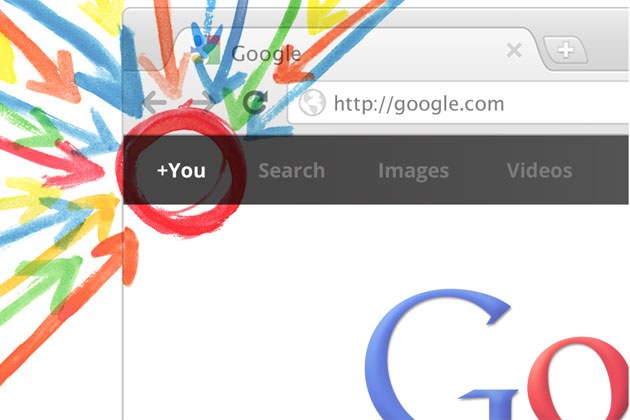Once competing with Facebook, Google Plus shuts down

It's easy to forget how big the news that Google was getting into social media was back in 2011, when the company announced it would be launching Plus. It launched with legitimate innovations like Circles, which were designed to "solve the age-old problem of what to do when you're friended by your mom."
Now, Google+ is dead, and the social network's history has been erased from the web.
Looking back on Google+ and how it was positioned, I'm struck how ahead of its time the product was: it was heavily focused on sharing with tight social circles rather than the world. I remember it feeling like a social network from the future, and trying to use it with some success, but it just never took hold outside of my tech-minded friends.
Bradley Horowitz, VP of Product on Plus told The New York Times in 2011 that "In real life, we have walls and windows and I can speak to you knowing who’s in the room, but in the online world, you get to a ‘Share’ box and you share with the whole world."
We're clambering for more private spaces in 2019, and our groups of public friends are increasingly moving toward private group chats instead. Plus, in hindsight, was ahead of its time. But, it was also late to the market, and evidence that if you try and force a product to work, it isn't a guaranteed success.
That was the problem with Google Plus, in the end: it was foisted upon everyone in the world who interacted with a Google service—it was literally required to create a profile in order to use YouTube—so almost everyone created a profile, but it didn't mean they'd actually use it. Unsurprisingly, Plus became the most popular ghost town on the web.
Plus held on for a long time for a Google product. It received product updates as recently as late 2018, and even a redesign earlier in the year. There were still active users posting frequently, but most of them in very small, engaged circles based around topics.
Google only really decided to kill Plus when it was faced with a privacy breach, and a cross-roads: fix the problem and keep maintaining what now amounts to a liability, or just shut it down. The latter made sense, and it became clear that the privacy issues were much worse than expected so the shutdown accelerated. But, that still amounted to a monumental task of extracting Plus from deep integration with everything from Gmail to YouTube.
We finally got there yesterday, and Plus is gone forever: the homepage now redirects to a simple message about the shutdown. Google is 'out' of the social network game, even if a version of Plus lives on for enterprise users (for now), and it's a strangely bittersweet moment: a vestige of the last generation of social networks, at immense scale, going away.
I can imagine that a decade from now, if Facebook shut down its core product, it would feel the same, and I kind of miss those weird early days of social media, where everything was fun and we weren't thinking about how much mess it was causing for society.
Tab Dump
YouTube Executives Ignored Warnings, Letting Toxic Videos Run Rampant
In the same vein as the Plus shutdown, there's interesting YouTube news today: the company knew about the spread of toxic videos and did nothing to stop them. I wondered when backlash against Google's role in the spread of misinformation/hate online would be spotlighted alongside Facebook, and this report is worrying, highlighting a focus on growth, not safety.
Valve, the creator of Steam, throws its hat into the virtual reality ring
The VR space is still trucking along, even if the hype cycles have died down significantly. Valve, the company behind the popular game platform Steam, had widely been expected to release its own headset, given it has its own VR game environment—and it'll be doing exactly that with the Index in June.
I was an enthusiastic early adopter of VR with the HTC Vive, but I recently sold all my gear. It was a fun thing to demo with friends, but largely sat around gathering dust—until the wires disappear and the beefy PC behind the scenes gets easier to deal with, I think it'll remain in the novelty bucket.
Google Inbox was shut down yesterday, but Spark's email client can fill the Inbox-shaped hole with its new Android client
Speaking of, this article arguing that Google's constant product shutdowns are hurting its brand is absolutely right.
Good read: Netflix's 'Our Planet' says exactly what every other nature documentary won't
